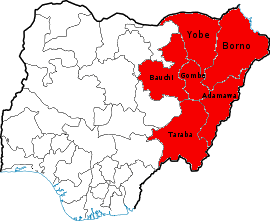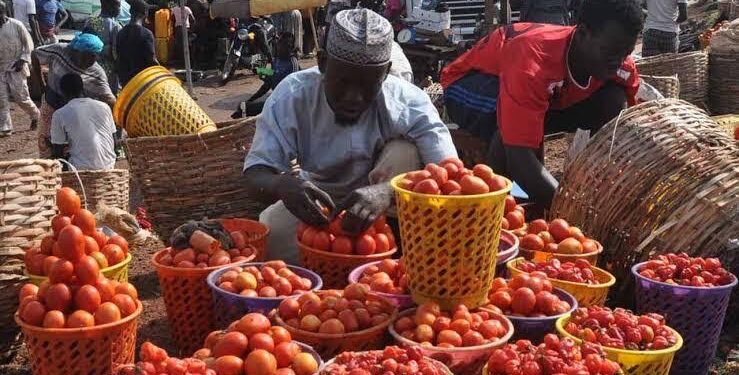Prices of perishable produce have fallen in some major towns in Yobe, Borno, and Adamawa states.
A survey of the perishable produce market in Damaturu, Yobe, revealed that prices have fallen by about 50 percent.
A large basket of tomatoes that sold for N120,000 between April and May is now fetching N40,000, while a small basket of tomatoes that previously fetched N75,000 is now fetching N18,000.
A bag of pepper that sold for N170,000 during the same period is now fetching N82,000, while a bag of pepper is now priced at N70,000, up from N75,000 in July.
Similarly, a bag of okra that sold for N50,000 during the period under review is now fetching N25,000. However, the price of onions has increased, with the commodity fetching between 28,000 and 30,000 naira per bag three to four months ago now fetching 50,000 naira.

Muazu Abbas, chairman of the market, said the drop was due to the arrival of new products in the market.
“Prices of perishable items usually drop whenever harvests are made and new goods arrive in the market, but the prices rise when there is shortage of goods,” he said.
However, the price of yam has soared at the Bayan Tasha market in the capital.
Two small tubers of yam that sold for 1,500 naira in 2023 are now fetching 4,000 naira, while three large tubers that sold for 3,500 naira in the same period are now fetching 15,000 naira. When contacted, Mr Habib Mohammed, a market leader in yam, blamed the sudden increase on the under-supply of the product in the market.
He also attributed it to the increased cost of transporting produce from Taraba, Benue, Nasarawa, and Plateau states to the market.
The chairman of the Yobe chapter of the All Farmers Association of Nigeria (AFAN), Mr Usman Gari, expressed concern over the high cost of setting up food storage facilities.

“Storage facilities preserve crops and increase profit, especially in cultivation of perishable items.
“Unfortunately, establishing such factories is capital intensive and most of us do not have that kind of money,” he said.
Ngari called on governments at all levels to support capital to acquire storage facilities to boost farmers’ productivity and income.
In Borno, perishable commodity prices are the same as in Yobe, but traders said they expect prices to fall further in the coming months as farmers in the state start harvesting tomatoes and other fresh commodities.
“The supplies we are getting now are from Kaduna and Kano,” said Isa Mohammed, a trader at Maiduguri’s vegetable market.
Mustapha Usman, a grain trader, said prices of cereals such as rice, beans, maize, and millet produced in Borno remain high and may only fall once harvesting begins in October.
In Adamawa, cereal prices also remained high, although fresh commodity prices fell in relation to the harvest. Aliyu Mohammed, president of the Adamawa chapter of the Association of Small-Scale Industrialists of Nigeria, noted that a 100kg bag of maize that sold for 60,000 naira last year now goes for just 90,000 naira.
“That of white bean that sold for N75,000 is now N160,000.”
“We just have to wait and what will happen when the harvest commences in a few weeks.”































